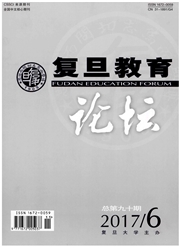

 中文摘要:
中文摘要:
收入差距不断扩大已成为学术界关注的重要议题之一。人力资本和社会资本理论虽然成为个体收入差异的解释路径,但并未在社会群体收入差距机制上做深入探讨。作者使用2006年“中国综合社会调查”的数据,借助分位回归模型估计了人力资本和社会资本的回报率,从而探究人力资本与社会资本对收入差距的影响机制。研究发现:人力资本对收入差距起收敛作用;社会资本对收入差距起拉大作用;人力资本和社会资本对收入具有联动效应。因此,要缩小中国城市居民的收入差距,必须发挥人力资本的收敛作用,抑制社会资本导致富者更富的“马太效应”。
 英文摘要:
英文摘要:
One of the important issues in academia is that income gap is being kept enlarged in China. Although human capital and social capital are used to explain individual income differences, there is no in-depth analysis of income gap mechanism between social groups. Using the data of Chinese General Social Survey in 2006, the study estimates returns to human capital and social capital by Quantile Regression. It is found that human capital restrains the income gap while social capital enlarges the income gap, which displays "the Matthew Effect". In order to narrow the income gap of Chinese urban residents, it is imperative to maximize the convergence effect of human capital and minimize the "the Matthew Effect" of social capital.
 同期刊论文项目
同期刊论文项目
 同项目期刊论文
同项目期刊论文
 期刊信息
期刊信息
